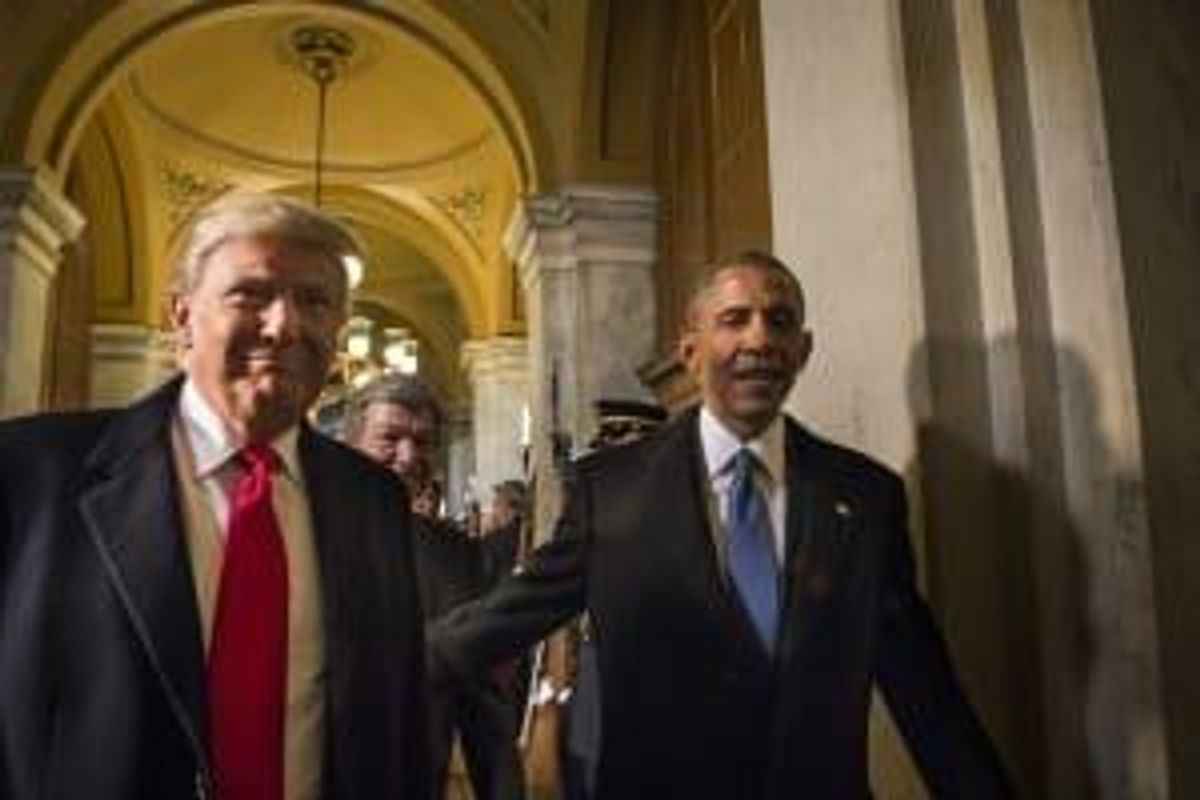Good News for the Financial Industry, Bad News for Retirees

Trump’s aim to loosen regulations is celebrated by the financial industry but criticized by Democrats and everyday investors.
In yet more executive order news, Trump put pen to paper twice on Friday, ordering reviews of systems acting as financial regulators.
First, the fiduciary rule was finalized by Obama in 2016 and scheduled to go into effect on April 10, 2017. The Presidential Memorandum on Fiduciary Duty Rule, signed by Trump, states the rule “may not be consistent with the policies of my Administration.” The President wants the Department of Labor to undo their work and review the new regulation.
What is the fiduciary rule?
According to Harold Pollack, author of The Index Card, talking to Money.com, the fiduciary standard is the requirement that a financial advisor put a client’s financial interests first. Instead of, that is, operating under a suitability standard, meaning giving advice that’s appropriate and suitable but maybe not the best option for the client. The fiduciary rule is meant to safeguard clients’ interests. Specifically, the “fiduciary rule aims to protect retirement savers from bad advice and keep more money in their pockets”. It was, however, not popular with financial companies, who lamented the strict regulations.
Dodd-Frank Act
Secondly, Trump turned his attentions to the Dodd-Frank Wall Street Reform and Consumer Protection Act, named after Christopher Dodd and Barney Frank. Signed by Obama in 2010, in response to the 2008 financial crisis, the law aimed for stability, “by improving accountability and transparency”. Trump has signed another executive order to roll back the reform, asking the Treasury Department to report back with recommendations by the summer.
What do the repeals mean?
The retirement community should watch out. They need to be savvy as potentially they will be left with biased financial advice.
Washington is aligning with Wall Street; shareholders in US banks should be happy, as they might receive a windfall of up to $120 billion in capital as Trump deregulates the industry. The KBW Bank Index (INDEXNASDAQ:BKX), an economic index consisting of the stocks of 24 banking companies, was up around 2.2 percent on Friday. The Dow Jones US Banks Index (INDEXDJX:DJUSBK) closed with a gain of 2.52 percent. Average investors are at risk; if the global banking system crashes again, an event Dodd-Frank was created to avoid, they will be affected.
Between impetuous investors, media panic and political spin, it is difficult to gauge the outcomes. All told, Trump’s overhauls intend to mark a fresh “approach to financial markets, with an emphasis on removing regulatory burdens and opening up investor options”, according to Bloomberg. As Press Secretary Sean Spicer says, they are “delivering some much-needed regulatory relief to lenders and borrowers”.
Don’t forget to follow us @INN_Technology for real-time news updates!
Securities Disclosure: I, Emma Harwood, hold no direct investment interest in any company mentioned in this article.